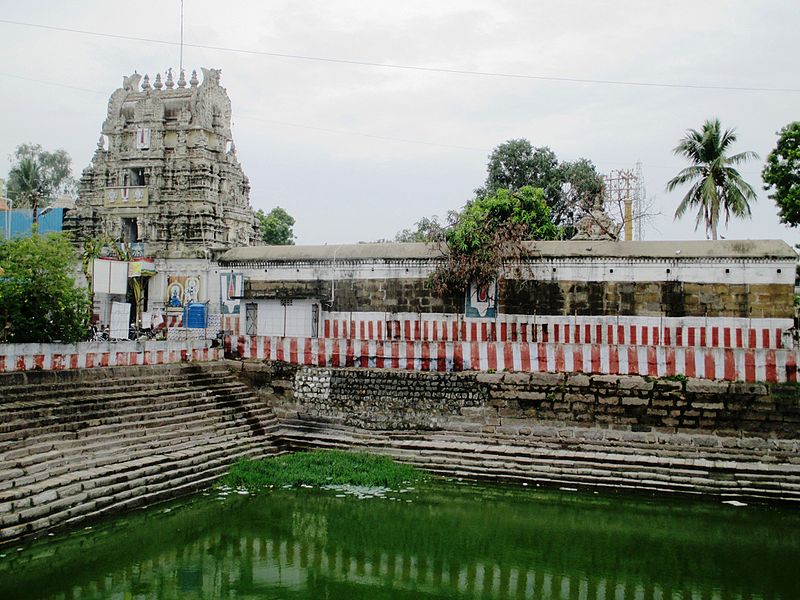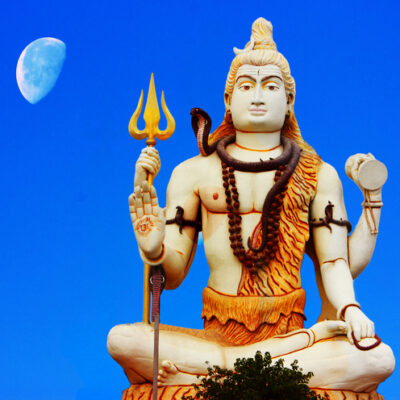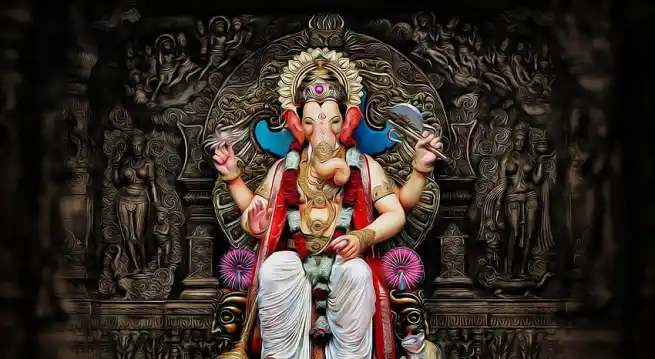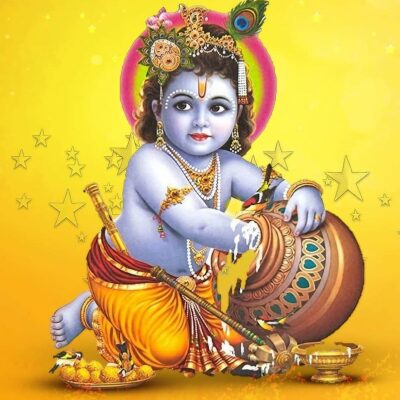Sri Ashtabujakaram Perumal Temple- Kanchipuram

Deity: Adi Kesava Perumal (Vishnu) , Amman: Alamelu Mangai (Lakshmi) Temple Address: Sri Ashtabujakaram Perumal Temple, Gandhi Rd, Chinna Kanchipuram, Ennaikaran, Kanchipuram, Tamil Nadu 63150 Open between: 06:00 AM to 12:00 PM and 04:00 AM to 08:30 AM
Introduction
- Location: Kanchipuram, Tamil Nadu
- Deity: Ashtabujakaram Perumal (Vishnu)
- Consort: Alamelumangai
- Theertham: Gajendra Pushkarani
- Architecture: Dravidian style
- Inscriptions: Kulothunga Chola I (1070-1120 CE), Rajendra Chola (1018-1054 CE)
- Temple dedicated to Vishnu as Ashtabujakaram (eight-armed form)
- Part of the 108 Divyadesams
- Glorified in the Divya Prabandha
- Worships Vishnu as Ashtabujakaram and his consort Lakshmi as Alamelumangai
Puranic Significance
- Renovated by Pallavas, Cholas, and Vijayanagara kings
- Legends associated with:
- Vishnu’s intervention during the conflict between Saraswati and Lakshmi
- Vishnu assumes Ashtabujakaram form to defeat demons and protect Brahma’s penance
- Gajendra Moksha: Vishnu saves the elephant king Gajendra from a crocodile
- Inscriptions from Kulothunga Chola I and Rajendra Chola on temple walls
Beliefs
- Devotees pray for removal of obstacles in buying property and resolving issues with existing homes
- Tirumanjanam (ritual bath) offered to Perumal for blessings
Special Features
- Located in Vishnu Kanchi (Chinna Kanchipuram), 2 km from Varadaraja Perumal Temple
- Four-tiered rajagopuram (gateway tower)
- Ashtabujakaram Vishnu image with eight weapons: sword, shield, mace, bow, arrow, lotus, conch, chakra
- Mahalakshmi depicted on Vishnu’s chest with a Saligrama garland
- Separate shrine for Pushpakavalli Thayar (consort)
- Shrine for Varaha Perumal in a seated posture under the hood of serpents
- Friday Mandapam (hall) for worship
- Shrines dedicated to Hanuman, Alwars, Andal, and Sarabeswaran
- Gajendra Pushkarani temple tank outside the entrance
Festivals
- Vaikunta Ekadasi (Margazhi) – 10-day celebration, most significant festival
- Gajendra Moksha (Aadi) – Celebrated in Hastham star
- Rama Navami and Navaratri
- Daily rituals performed six times a day:
- Ushathkalam (7 a.m.), Kalasanthi (8 a.m.), Uchikalam (12 p.m.), Sayarakshai (6 p.m.), Irandamkalam (7 p.m.), Ardha Jamam (10 p.m.)
- Rituals include alangaram (decoration), neivethanam (food offering), and deepa aradanai (lamp waving)
- Nagaswaram and tavil played during the final worship, alongside Vedic recitations
Century/Period/Age
1000-2000 years old
Saints and Singers
Mangalasasana: Bayalvar
Managed By
Hindu Religious and Charitable Endowments (HRCE)
Best Time
கோயில்திறந்திருக்கும்நேரம் : 07.00 – 12.00 மற்றும் 16.00 – 20.00.
Accommodation
Kanchipurem
Nearest Bus Station
Kanchipurem
Nearest Railway Station
Kanchipurem
Nearest Airport
Chennai






